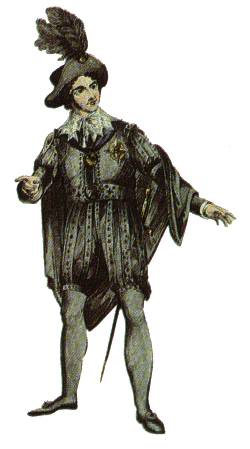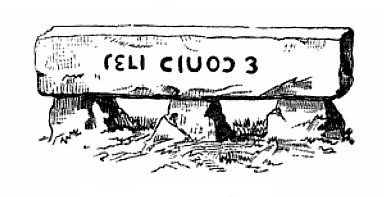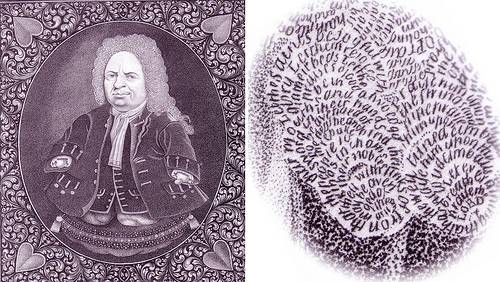
Edmund Kean was accounted the greatest actor of his generation, but not everyone shared that opinion. Violette Garrick wrote to him:
You don’t know how to play Abel Drugger.
He wrote back:
I know it.

Edmund Kean was accounted the greatest actor of his generation, but not everyone shared that opinion. Violette Garrick wrote to him:
You don’t know how to play Abel Drugger.
He wrote back:
I know it.
One dollar and eighty-seven cents. That was all. And sixty cents of it was in pennies. Pennies saved one and two at a time by bulldozing the grocer and the vegetable man and the butcher until one’s cheeks burned with the silent imputation of parsimony that such close dealing implied. Three times Della counted it. One dollar and eighty-seven cents. And the next day would be Christmas.
That’s the first paragraph of “The Gift of the Magi.” Does it contain a blunder? If Della has $1.87, and pennies make up 60 cents of it, what constitutes the remaining $1.27?
There are two possibilities. The story doesn’t say that only 60 cents of the total was in pennies; possibly 62 cents was, though this makes Della’s observation seem pointless. The second possibility is that the story is set in the late 19th century, when the United States was still minting two- and three-cent pieces — though there’s no other indication that this is the case.
So is it a blunder? Only O. Henry knows for sure.

Shakespeare said everything. Brain to belly; every mood and minute of a man’s season. His language is starlight and fireflies and the sun and moon. He wrote it with tears and blood and beer, and his words march like heartbeats. He speaks to everyone and we all claim him but it’s wise to remember, if we would really appreciate him, that he doesn’t properly belong to us but to another world; a florid and entirely remarkable world that smelled assertively of columbine and gun powder and printer’s ink, and was vigorously dominated by Elisabeth.
— Orson Welles, Everybody’s Shakespeare, 1934
Thornton Wilder called this “the greatest thumbnail summation of Shakespeare’s genius ever written.”
In a 1999 quiz, the Washington Post asked its readers, “What automobile is referred to in a license plate that reads 1 DIV 0?”
The winning answer came from Supreme Court chief justice William Rehnquist, of all people. What was it?

In Collectanea de Rebus Hibernicus, his 1791 disquisition on Irish antiquities, Charles Vallancey describes a group of sepulchral stones on the Hill of Tara, one of which is inscribed BELI DIVOSE, “To Belus, God of Fire.”
Vallancey goes into some detail interpreting this as an altar to Baal. It turned out later that a wanderer had lain upon the stone and idly carved his name and the date upside down: E. CONID 1731.
Vallancey’s reaction is not recorded.
In 1907, Massachusetts physician Duncan MacDougall conceived a singular experiment. When he observed that a patient at his Haverhill hospital was nearing death, he installed him in a specially constructed bed in his office and measured his weight both before and after death. With six such weighings he determined that humans lose between 0.5 and 1.5 ounces at death.
“Is the soul substance?” he wrote. “It would seem to me to be so. … Here we have experimental demonstration that a substance capable of being weighed does leave the human body at death.”
Similar experiments with 15 dogs showed no change in mass, proving, he decided, that dogs have no souls. MacDougall’s findings were written up briefly in the New York Times and occasioned a flurry of correspondence in American Medicine, but after that they were largely forgotten. But who knows? Perhaps he was right.
“If women didn’t exist, all the money in the world would have no meaning.” — Aristotle Onassis

German illusionist Matthias Buchinger (1674-1740) was born without hands or legs — but he scarcely missed them. Besides being an expert artist, musician, and marksman, Buchinger excelled as a card player and conjuror:
“He used to perform before company, to whom he was exhibited, various tricks with cups and balls, corn, and living birds; and could play at skittles and nine-pins with great dexterity; shave himself with perfect ease, and do many other things equally surprising in a person so deficient, and mutilated by Nature.” (Great and Eccentric Characters, 1877)
Almost unbelievably, in the self-portrait above, engraved with his finlike hands, Buchinger hid seven biblical psalms and the Lord’s Prayer in the curls of his wig.
Fifty-one voters of Milton, Wash. (Tacoma suburb) last week marked their ballots for one Boston Curtis, Republican candidate for precinct committeeman. Boston Curtis was elected. Milton’s Mayor Kenneth Simmons, a Democrat, chortled hugely. He, who had sponsored Candidate Curtis and filed his papers, had proved his point that voters ‘have no idea whom they support.’ Boston Curtis is a large brown mule.
— Time, Sept. 26, 1938
